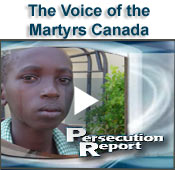where does my help come from?
My help comes from the Lord,
the Maker of heaven and earth."
For years, when I read Psalm 121's beautiful, reassuring words, I didn't have the right idea about what they meant at all. Having visited the Rockies, I immediately would would picture a spectacular jagged peak, with snow on top. I imagined permanence, grandeur, immensity; all appropriate attributes to ascribe to God. I thought of the mountain as an analogy for God. I equated mountains with calm and peace.
What I didn't know, until I took a seminary course from the wonderful Kenneth Cuffey, was the context of this psalm. Of course, I knew that the Psalms were a collection of song lyrics, to which we have lost the music. What I didn't know was that for author of this particular song, the hills mentioned are not a source of calm, not an analogy for God, but actually a place of spiritual menace. You see, in ancient Israel, the tops of hills were the "high places", the location of non-Hebrew worship, with altars to various local gods that were worshipped by those outside of Judaism. So, in lifting his eyes to the hills, the song writer was saying, essentially, "What is worshipped up on those hills is not the God I worship. My help will never come from the high places, because I worship the Lord, who actually made those hills."
Sacrifices, sometimes human, would be made up on those hilltop altars, as well as other fertility rituals deemed despicable by the Hebrew people. The common thought among those who worshipped in the high places was that their gods needed to be roused from their slumber with loud supplications to meet the needs of their worshippers.
"He will not let your foot slip-
he who watches over you will not slumber;
indeed, he who watches over Israel
will neither slumber nor sleep."
The song writer was saying, "I worship a God who is always alert and aware of my needs, and eagerly protects me from harm. I don't need to wake him up and beg him to do that; he takes care of me constantly out of his great love for me."
Many of the pagan gods worshipped on the hilltops were related to the astronomical entities that the local people could see-the sun and the moon in particular. But to a Hebrew believer in the Lord, that was worshipping the created, not the Creator, and considered blasphemous. So the song writer goes on to write:
"The Lord watches over you-
the Lord is your shade at your right hand;
the sun will not harm you by day,
nor the moon by night."
He sums up with this reassurance:
"The Lord will keep you from all harm-
he will watch over your life;
the Lord will watch over your coming and going
both now and forever more."
So, I was wrong to think that the "hills" were the source of comfort in this psalm. Instead, the source of comfort is the God who created everything, who never sleeps, knows exactly where I am and what I need at all times, and is omnipotent to save me from all harm. While I can marvel at the beauty of the the majestic mountains God has created for his pleasure, I don't need hills for comfort at all.
Which, all things considered, is a very good thing.




 The
The 






















































